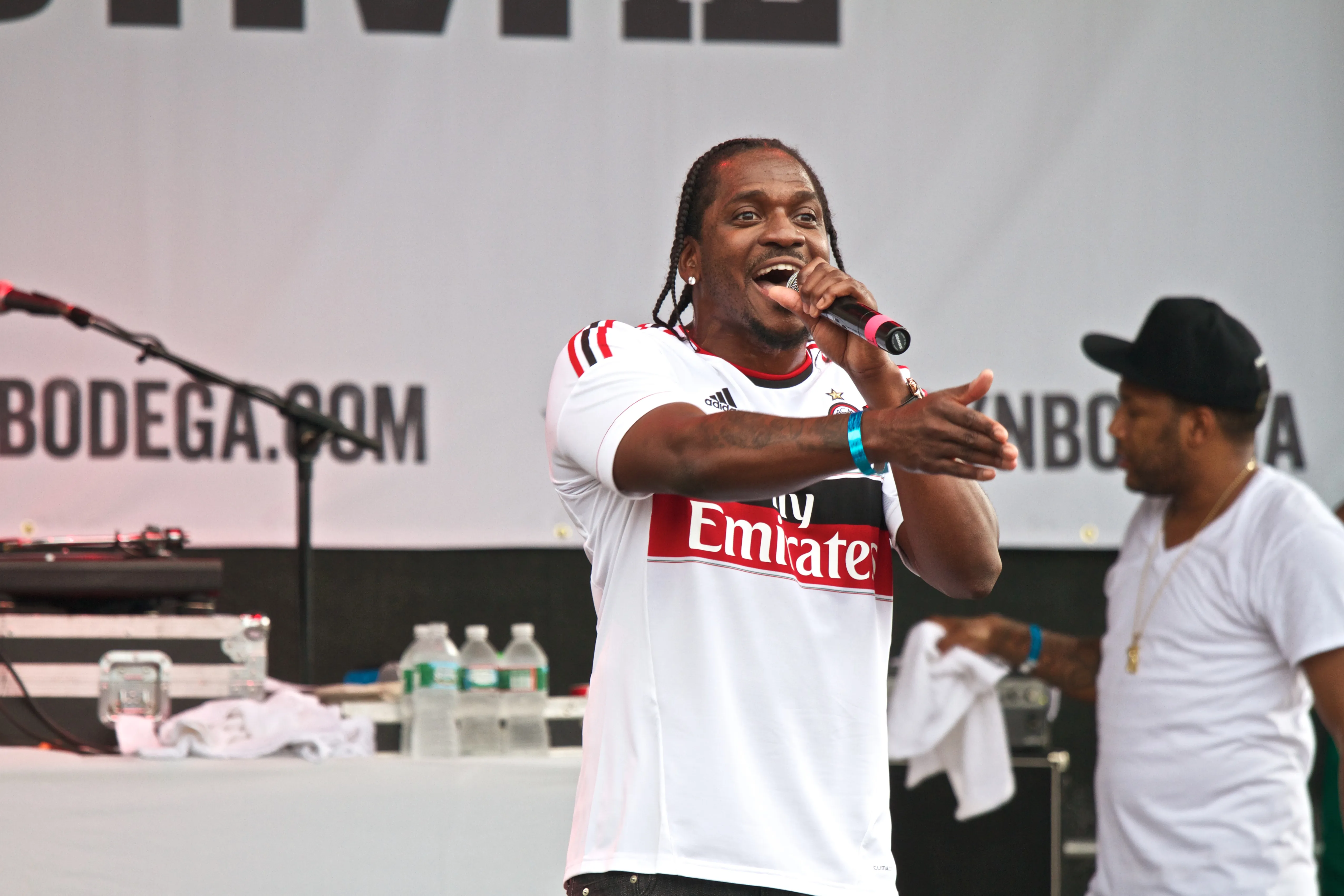Pusha T is a patient man. You can just tell from his music, the way the he sneers out every line he raps like he’s waited years to say it, to boast about how he’s made it and to look down on you from up high. You can also tell from his release schedule — unlike many of his rap contemporaries, Push has never felt the need to release music at any sort of consistent rate. While not quite at the levels of delay associated with hermit sages like D’Angelo, Fiona Apple or Frank Ocean, the wait between the announcement of his (then) second album, “King Push” in April 2013 and its release as “DAYTONA” last week still added up to more than five years.
It’s not that Pusha T has disappeared — the Virginia Beach rapper released a full album in 2015, intended as a “prelude” to “King Push,” and has taken on the role of president of Kanye West-founded label G.O.O.D Music since early 2016 — but that he’s learned how to take his time, to perfect his craft. And god, was “DAYTONA” worth the wait. Coming in at a riveting 21 minutes, Pusha T’s third album is the most essential rap release of the year so far, a perfect illustration of the rapper’s mastery of his craft.
He’s known as a cocaine rapper — mostly because he really does rap about coke more often and better than anyone else — but Pusha T raps about cocaine the same way that Prince talked about sex or Joni Mitchell sings about heartbreak: both as the thing itself and as a gateway into something deeper and more free. From the first bars of “Grindin,” his first hit with Clipse, the 2000s duo he formed with his brother Malice, it was clear that he had a gift.
While Malice’s verse is good, it’s standard coke talk, the kind of stuff that 90s rappers from Jay-Z to Scarface had already pioneered. Pusha instead delivers something weirder, a more stripped down and abstract take on the style — instead of talking about coke as part of an overall milieu of gangster excess, he runs his entire flow through cocaine references, letting white powder coat everything he does.
Since the 2002 release of Clipse’s commercial debut album, “Lord Willin’,” he’s done precious little but improve on that idiom, sharpening it to a point harder than anything in your favorite rapper’s arsenal. He’s not the most stylistically diverse rapper, but to watch him work, to stack references and euphemisms into songs, is an astonishing thing even decades into his career.
Yet Pusha T, despite his evident skill, has not had the easiest path to the pinnacle of the rap world. Label troubles postponed Clipse’s follow-up to “Lord Willin’” until 2006, and while “Hell Hath No Fury” was a worthy successor in terms of quality, it fell below commercial expectations and led to them being dropped from their label. After one more album, the duo broke up, with the brothers going their separate ways: Malice changed his name to No Malice and became a Christian rapper, while Pusha T joined forces with Kanye West and G.O.O.D Music.
Pusha’s first two albums on G.O.O.D fit the label’s name as well as its general vibe — they were good, but not great, albums, filled with glitzy, maximalist beats and hooks that would go equally well with verses by labelmates like Big Sean or Cyhi the Prince. And Pusha sounds good over those beats! He really does! But his deconstructed coke rap flows sound best when he’s rapping over beats as weird and unexpected as he is — from the lunch table percussion of “Grindin” to the mutant electric pianos of “Untouchable,” unorthodox production choices bring out the best in Pusha. On “DAYTONA,” he finally gets the album length canvas of production he deserves.
“DAYTONA” is a case of the form finally catching up to the function — it’s shorter and more concentrated than either of Pusha’s previous solo albums. The beats, all expertly produced by Kanye West, are spare and almost aggressively ugly. There are no silky R&B choruses here, just harsh guitars and synths cribbed from 70s soul and progressive rock. It’s simultaneously retro and futuristic, the perfect backdrop for a rapper who has always positioned himself as both a forward-looking innovator and an old-school kingpin.
And with a table setting as good as the one Kanye provides, Pusha T can’t help but feast. His rapping makes up more than 60 percent of the record as a whole, counting instrumental outros, and is only joined by two features in the form of lackluster verses from Rick Ross and Kanye himself. It’s in comparison to those two contemporaries that Pusha seems most magnificent, though — they’re all in their forties, but only Pusha is still rapping like he’s in his prime. It’s something that quotables don’t do justice — a couplet like “We don’t do vegetables, n***** get flatlined / Welcome all beef, then we heat ’em with flat irons” is clever enough on paper but is elevated to something higher when heard out loud, with Pusha’s voice layering in menace and a self-knowing satisfaction. It’s a satisfaction that’s earned, a product of two decades of patience.
It’s that same patience that becomes Pusha’s greatest weapon on what will end up being the most remembered moment from “DAYTONA.” On the album’s final track, the ominously-titled “Infrared,” he unloads four years worth of grievances against Drake, Lil Wayne and Birdman, rekindling a years-old beef with new ammunition and perfect poise. Unlike Drake’s prior opponents — shout out to Meek — Pusha sounds utterly unconcerned with stealing a sliver of his more famous opponent’s shine. When Drake shot back hours later with the “Duppy” freestyle, something about how his claim that Pusha owes him for “promotional assistance and career reviving” rang false. How could Pusha T need a career revival from anyone?
Contact Jacob Kuppermann at jkupperm ‘at’ stanford.edu.
